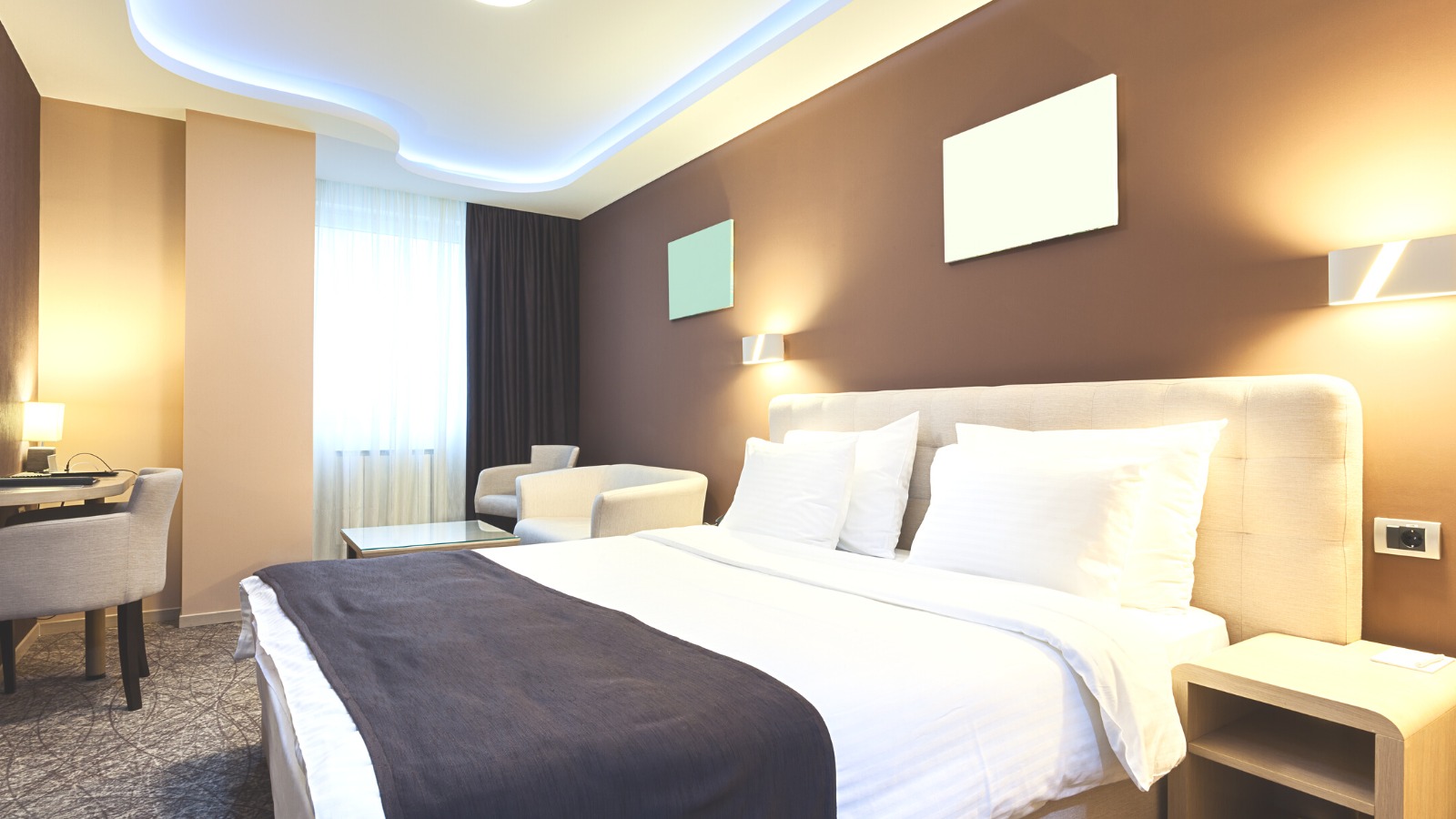
Yield Management, in hotels, is one of the earliest techniques used for the purpose of maximising revenues. Pioneered by the airlines in the United States in the 1980’s and later adopted by the hotel industry, it is widely recognised as the catalyst for and forefather of Revenue Management.
It is a valuable component of revenue strategy that can be used by those that provide guest accommodation or lodgings, such as hotels, inns and serviced apartments. It is worthy of note too, that it does differ from Revenue Management and in this article, we detail how.
We also explain what yield management is and its history, why it is important, what the benefits are and finally, how to calculate and practice it.
What Is Yield Management
Yield management involves the creation of a dynamic, variable pricing strategy that utilises historical data as a basis to make predictions about future demand and is designed to deliver different prices to different guests to maximise revenues from a fixed capacity of hotel rooms. It is based upon the principle of selling the right room, to the right guest, at the right time, for the right price.
The concepts at the very heart of yield management are that:
a) hotels have a finite number of perishable, time-limited inventory (i.e. hotel rooms) to sell
b) if a room is not sold on any given night that the opportunity to do so is lost forever
c) different guests are often willing to pay different prices for the same room, due to a variety of factors. For example, if you want to make a reservation at a hotel, they will likely charge you different prices depending on which room type you want to reserve, if you are making a reservation as a first-time leisure guest or stay regularly for business purposes and when you choose to make your reservation.
A Brief History Of Yield Management In Hotels
When Yield Management was introduced within the hotel industry, hotels began to develop processes and systems to drive inventory and pricing efficiencies that would consequently enable them to increase their revenues.
Tactics employed included offering discounts for low-demand dates and, conversely, increasing prices for high-demand dates. Imposing cancellation and no-show fees, length of stay requirements, purchase restrictions and supplements for superior room types – all of which are still applied as part of Revenue Management today.
Yield Management vs Revenue Management In Hotels
Yield management is frequently cited as having a ‘narrow focus’ and is generally regarded as being concerned only with establishing the optimal selling price and volume of sales that will yield the highest possible room revenue from guests, utilising effective inventory control and pricing. It is a key component of revenue management in hotels – a crucial, tactical element that focuses solely upon selling a hotel room.
Revenue management has a broader scope and focuses upon strategy, determining actionable steps required and tactics that can be utilised to achieve medium to long-term goals. It also encompasses competitor and market analysis, distribution, forecasting, performance analysis, reporting and segmentation, to assist in predicting customers’ behaviour.
Furthermore, it considers the prospect of additional spend from prospective guests on ancillary products or services available at the hotel, such as food and beverage, a round of golf or a spa treatment and the costs associated with any sale, such as commission.
Consequently, revenue management and, furthermore, a hotel revenue consultant can help you maximise both total revenue and profits.
Why Is Yield Management Important In Hotels?
Fixed costs are typically quite high for hotels, but the variable cost of providing and subsequently servicing a room for guests is relatively low in comparison to the likely revenue generated from the sale of a room to a guest. Furthermore, hotels only have a limited number of rooms for sale each day that have no value once the day has passed.
Yield management is important because it help hotels to predict demand and to set appropriate prices that will not only enable you to sell sufficient rooms to attempt to cover those fixed costs when demand is low, but also to prospectively maximise revenues and subsequently profits when demand is high – ensuring that hoteliers continually generate the most revenue possible from their property.
Guests can also be beneficiaries of yield management practices too, if rooms are made available for sale at prices lower than what they may have expected, which may lead to additional bookings in future from previously delighted guests.
Furthermore, yield management can be accomplished without significant investment, because both the cost of implementation and costs on an ongoing basis are relatively low. The prospect of pricing-related errors is also reduced too because prices are based on predicting demand using relevant data.
How To Calculate Yield At Your Hotel
Yield, as a percentage, can be calculated using the following formula:
(Achieved Revenue/Maximum Potential Revenue) x 100
For example, if you have a 25-room hotel with a rack rate of £249, your maximum potential revenue each night would be £6,225.
If, last night, for example, you sold 20 rooms at £149, you would have achieved room revenue of £2,985.
Using the numbers from the above example in the above formula, it looks like this:
(£2,985/£6225) x 100 = 48%
Consequently, the yield, in the above example, would be 48%.
However, without context, this is just a percentage. It must, therefore, be used merely as a component of a wider system built to understand your performance – one which uses a range of data and information to provide you with a more thorough indication as to how your property is performing. It should also, subsequently, serve as a catalyst for ideas as to how you might adjust your strategy to increase both revenue and profits.
To continue the above example, if demand is strong, a better strategy might be to increase the rate to £179, because even if the hotel only sells 18 rooms, it will generate £3222, a yield of 52% and save all the costs associated with selling two additional rooms!
How To Practice Yield Management In Your Hotel
Here are six actionable steps that to get you started with practicing yield management at your property
1. Demand
Create a demand calendar that features demand levels, group business, holidays, local events and RevPAR.
2. Pricing
Once this has been created, implement a dynamic pricing strategy and set prices for each of the next 365 days that are reflective of the day of week, local events, market conditions, occupancy, seasonality and trends.
You should vary your pricing – charge higher prices based on the bed type(s), for those room types that are in demand and/or that offer additional amenities, extra space and/or a great view, based on the number of occupants and the number of rooms being reserved. Offer a variety of rate plans to appeal to a broad range of prospective guests too, such as incentives to book direct, length of stay discounts, non-refundable rates and packages and provide guests with opportunities to upgrade their room type prior to arrival and/or at check-in.
Monitor the impact of all your pricing decisions regularly and make adjustments if necessary, by, for example, increasing prices when occupancy is high and/or decreasing prices to improve your chances of capturing additional business on dates when occupancy is low.
3. Restrictions
Implement stay restrictions too, such as closed-to-arrival (CTA) or a minimum length of stay (MinLOS) to boost occupancy on shoulder nights, which can be applied as an alternative to, or in conjunction with, increasing prices.
4. Technology
Use a Rate Shopper to check out your competitors’ rates in real-time and decide how to price your property relative to each of your competitors. Consider using a Revenue Management System (RMS) too, which can generate pricing recommendations and/or update your prices automatically when demand changes.
5. Market Segments
Different market segments will be willing to pay different prices at different times. For example, Tour Wholesalers can often book up to a year or more in advance, but typically expect a significant discount, whereas Online Travel Agents (OTA’s) can often be a great source of last-minute bookings even when prices are high. Identify which market segments are booking which room types and when and make appropriate adjustments to your prices accordingly.
6. Hotel Revenue Consultant
If you are struggling to achieve your desired yield and you lack on-property revenue management expertise, it may be the opportune time for you to start a conversation with a hotel revenue consultant. An experienced revenue professional should be able to assist you in improving your yield management by analysing demand, implementing a dynamic, varied pricing strategy, applying restrictions, utilising relevant technology and examining market segment behaviour to maximise your revenues.
Realise Your True Hotel Revenue Potential
At MavREV, we provide a complete outsourced revenue management service to help independent hotels and accommodation providers across the UK reach their true revenue potential, at a fraction of the cost associated with employing a revenue professional. We will empower your business with revenue management expertise and serve as a friendly, proactive addition to your on-property team. Get in touch with us today to book your free revenue management audit!




